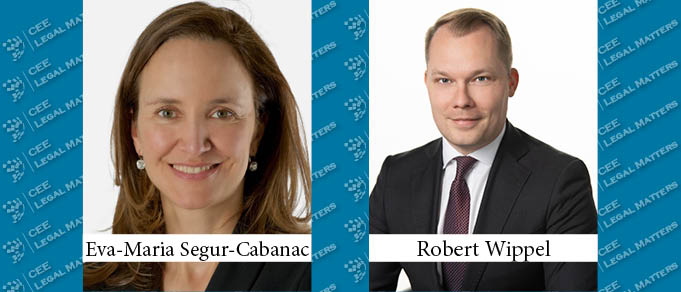Back in 2007, the foundation for sustainable financing was set through the issuance of a green Climate Awareness Bond by the European Investment Bank. This was in part due to the increased awareness of climate change. By June 2022, Austria wants to issue its first Green Bond. Possible investments for the Green Bond are public transport and renewable energy. Aside from bonds, sustainable financing can be concluded in several other product forms, such as guarantee lines, as well as classic bank loans. The volume of sustainable syndicated bank loans reached EUR 200 billion for the first time, last year.
The Austrian government has committed itself to the greening of the financial sector. To mitigate climate change and to accelerate greening, the Austrian government, as stated in its government program, advocates the introduction of a Green Supporting Factor (GSF) at a European level. The GSF means that banks are required to deposit less equity capital for loans that contribute to the transition to a sustainable climate-neutral economy. According to the government, a GSF will facilitate the granting of sustainable loans and, thus, would help to achieve European climate goals. The GSF is politically controversial though, as it can be seen as a non-risk-based capital requirement.
Furthermore, the Austrian government, as stated in its government program, is intending to facilitate the granting of sustainable loans. Yet, specific implementation measures are still missing. Market practice is already one step ahead of politics at this point. The London-based Loan Market Association, which is responsible for drafting a European market standard for large-volume loan financing, has published guidelines on sustainable loans. The Green Loan Principles (GLP) and Sustainability Linked Loan Principles (SLLP) are meant to provide borrowers and banks with useful guidelines for the arrangement of the documentation of the loan agreement. However, due to their nature as non-binding recommendations, they cannot replace the currently existing legal framework.
Although these two guidelines are similar, they follow different purposes. The GLP focuses on project-related financings, meaning that capital is borrowed for a specific, ecological project. The SLLP, on the other hand, prioritizes the ecological footprint of the company and is, as a consequence, eligible for any form of financing. Therefore, the SLLP is generally suitable for any SME operating an ecological business without the requirement of a link to a specific sustainable project.
In both guidelines, sustainability can be measured using key performance indicators (KPIs). When applying for sustainable financing, companies need to address in advance how they intend to measure their own sustainability performance. To be precise, compliance with KPIs has an effect on the costs of financing, whereby, in financing practice, the interest rate is usually adjusted on the basis of pre-agreed sustainability performance measures. If the KPIs, which are agreed upon individually with the bank beforehand, are achieved sustainability-linked loans are particularly interesting, as a reduction of interest rates can be achieved, irrespective of the purpose of financing. For larger projects, sustainability ratings calculated by rating agencies are typically applied. This results in a score comparable to known credit ratings and, therefore, the sustainability rating can be used when calculating interest rates.
Energy company Verbund AG takes a leading role regarding sustainable financing in Austria. In December 2018, the company concluded the first Austrian syndicated loan that provided for the interest calculation on the basis of ESG criteria only.
The trend of steadily increasing lending volumes for sustainable finance demonstrates that the integration of sustainability KPIs in the assessment of a company’s creditworthiness will play a key role in financings in the near future. This will allow companies that operate an ecological business model or take measures to improve their ecological footprint to benefit from lower financing costs. The positive effects on the reputation of a company that can secure its capital needs through sustainable finance are also worth mentioning.
By Eva-Maria Segur-Cabanac, Partner, and Robert Wippel, Counsel, Baker McKenzie
This Article was originally published in Issue 8.11 of the CEE Legal Matters Magazine. If you would like to receive a hard copy of the magazine, you can subscribe here.


